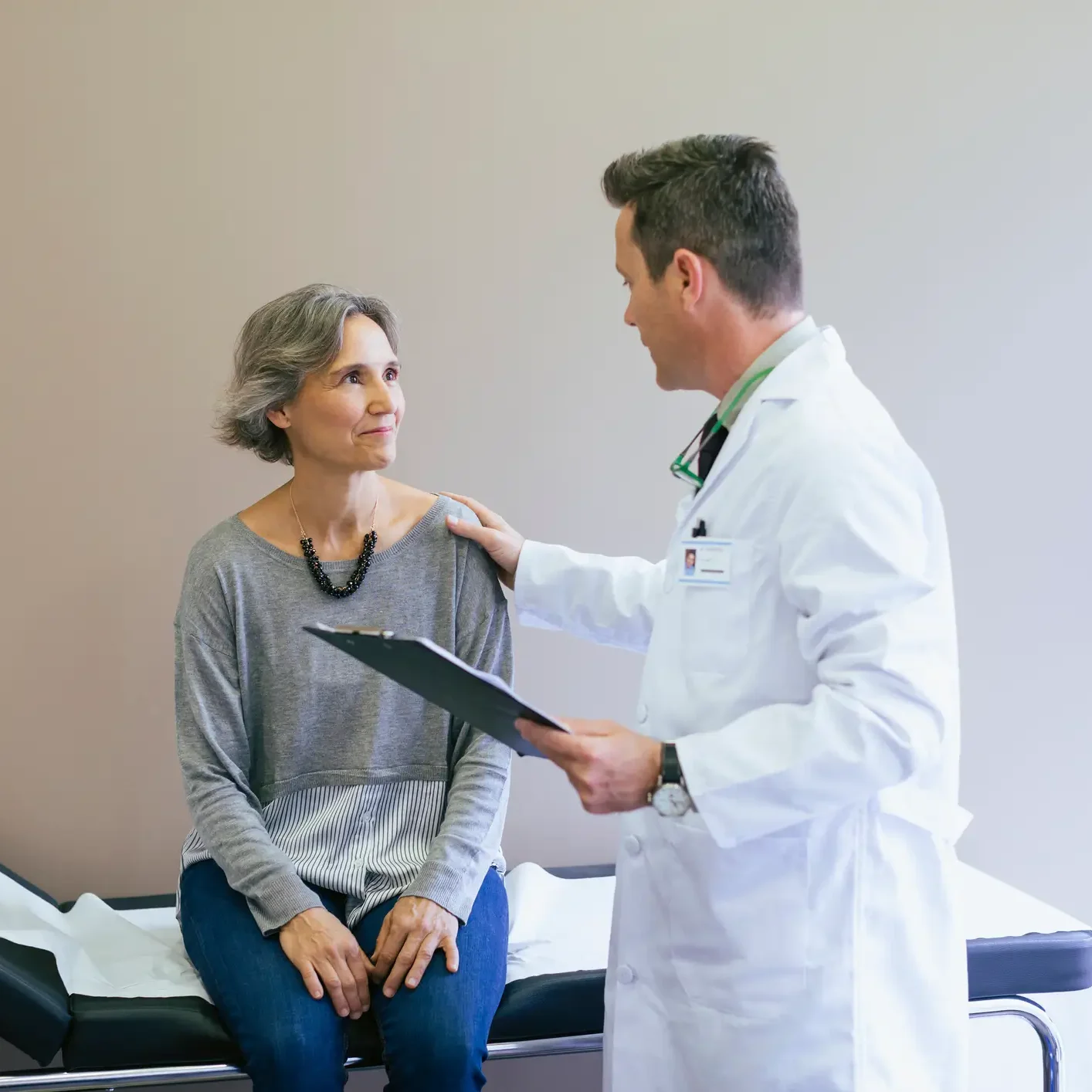There are many different types of cancer, and we are currently only screening for a fraction of them. Only 5 types of cancer have recommended screening tests that can identify cancer early, and about 70% of cancer deaths are caused by cancers with no recommended screening tests.1* Americans ages 50-75 are concerned about staying healthy:
This is Generation Possible
We’re all thinking about the future – not just for ourselves, but for those we love. Prioritizing our health is essential so we can be present for our loved ones and cherish the moments that matter most. But not all health issues are within our control, including cancer, a leading cause of death in the U.S.
Now, unlike the generations before us, we can take more control of our health with multi-cancer early detection (MCED) testing. That’s what makes us a part of Generation Possible.



A new era in cancer screening
It’s important to detect cancer as early as possible so you can take action.
MCED testing is a new option for this generation to have greater control of their health by screening for cancers that currently don’t have recommended screenings.1, 2 With a simple blood draw, MCED tests can screen for many different types of cancer, often before symptoms appear.3
Learn about Kate’s story
Actress Kate Walsh saw both of her parents navigate cancer.
Watch to learn about her story and what the promise of MCED testing means to her.
A need for more screening
Learn more about Generation Possible

Take this quick quiz to see if you are at an elevated risk for cancer and to learn more about MCED testing.

-
Are you 50 years old or over?AYesBNo
-
Do any of the following risk factors apply to you?[Select all that apply]ADiabetesBObesity (BMI ≥ 30)CHistory of smoking or current smokerDPersonal history of cancerEFamily history of cancerFGenetic mutations, a known hereditary cancer syndromeGInfections (HPV, HIV, chronic hepatitis B or C)HUse of immunosuppressive therapies after organ transplantationIEnvironmental and/or occupational exposuresENone of the above
-
How concerned are you about your cancer risk?AExtremely concernedBVery concernedCSomewhat concernedDNot concerned
-
How important is it to you to know your cancer risk as early as possible?AExtremely importantBVery importantCSomewhat importantDNot important
Learn more about this proactive step and how to talk to your doctor.
Take the Quiz AgainLearn more about MCED tests and whether it may be an appropriate option for you or a loved one in the future.
Take the Quiz AgainPatient + Provider Discussion Guide

It’s important to prioritize our health and speak to our doctors about recommended cancer screenings, so we can be here for the people and moments that matter. Currently, only 5 types of cancer have recommended screening tests.2 But now, unlike the generations before us, we can use multi-cancer early detection (MCED) testing.
Are you curious about MCED testing but unsure how to start the conversation? Download our discussion guide below for helpful tips for talking to your doctor about MCED testing.
Learn about an MCED option from GRAIL





MCED tests typically require a simple blood draw and screens for many different types of cancer, including the deadliest.3 An authorized ordering provider must prescribe an MCED test, and then you would go to a lab service for the blood draw. Once you get your results, they will indicate if a cancer signal is detected and help your healthcare provider guide the next steps. MCED tests do not diagnose cancer. Diagnostic testing is required to confirm cancer.

Age is the biggest risk factor for cancer. MCED testing is recommended for people aged 50 and older and others at elevated risk due to other clinical factors. Talk to your doctor to learn about additional risk factors.

A cancer diagnosis can be devastating—but catching it early can increase the chance of successful treatment.5,6 Those over 50 should consider talking to their doctor about adding an MCED test to their annual wellness exams and recommended single-cancer screenings, so they can screen for more cancers and take more control over their health.
Multi-cancer early detection is possible
Learn about an MCEDoption from GRAIL
Important Safety Information: The Galleri test is prescription only. The Galleri test is recommended for use in adults with an elevated risk for cancer, such as those aged 50 or older. It is not recommended in individuals who are pregnant, 21 years old or younger, or undergoing active cancer treatment. Galleri does not detect a signal for all cancers and should be used in addition to routine cancer screening. False positive and false negative results do occur.
Footnotes
*Assumes screening is available for all prostate, breast, cervical, and colorectal cancer cases and 43% of lung cancer cases (based on the estimated proportion of lung cancers that occur in screen-eligible individuals older than 40 years).
References
American Cancer Society Cancer Facts and Figures 2022. Available at: https://www.cancer.org/content/dam/cancer-org/research/cancer-facts-and-statistics/annual-cancer-facts-and-figures/2022/2022-cancer-facts-and-figures.pdf. [GRAIL, Inc. Data on file GA-2021-0065]
U.S. Preventive Services Task Force (USPSTF). Rockville, MD: U.S. Dept. of Health & Human Services, Agency for Healthcare Research and Quality. Recommended cancer screening tests, Grade A,B,C. https://www.uspreventiveservicestaskforce.org/uspstf/topic_search_results.
Klein EA, Richards D, Cohn A, et al. Clinical validation of a targeted methylation-based multi-cancer early detection test using an independent validation set. Ann Oncol. 2021;32(9):1167-77. doi: 10.1016/j.annonc.2021.05.806
Market research. [GRAIL, Inc. Data on file: GA-2023-0102]
American Cancer Society. The cancer atlas. [Internet] Early detection. https://canceratlas.cancer.org/taking-action/early-detection/
Etzioni R, Urban N, Ramsey S, et al. The case for early detection. Nat Rev Cancer. 2003 ;3(4):243-52. doi: 10.1038/nrc1041
